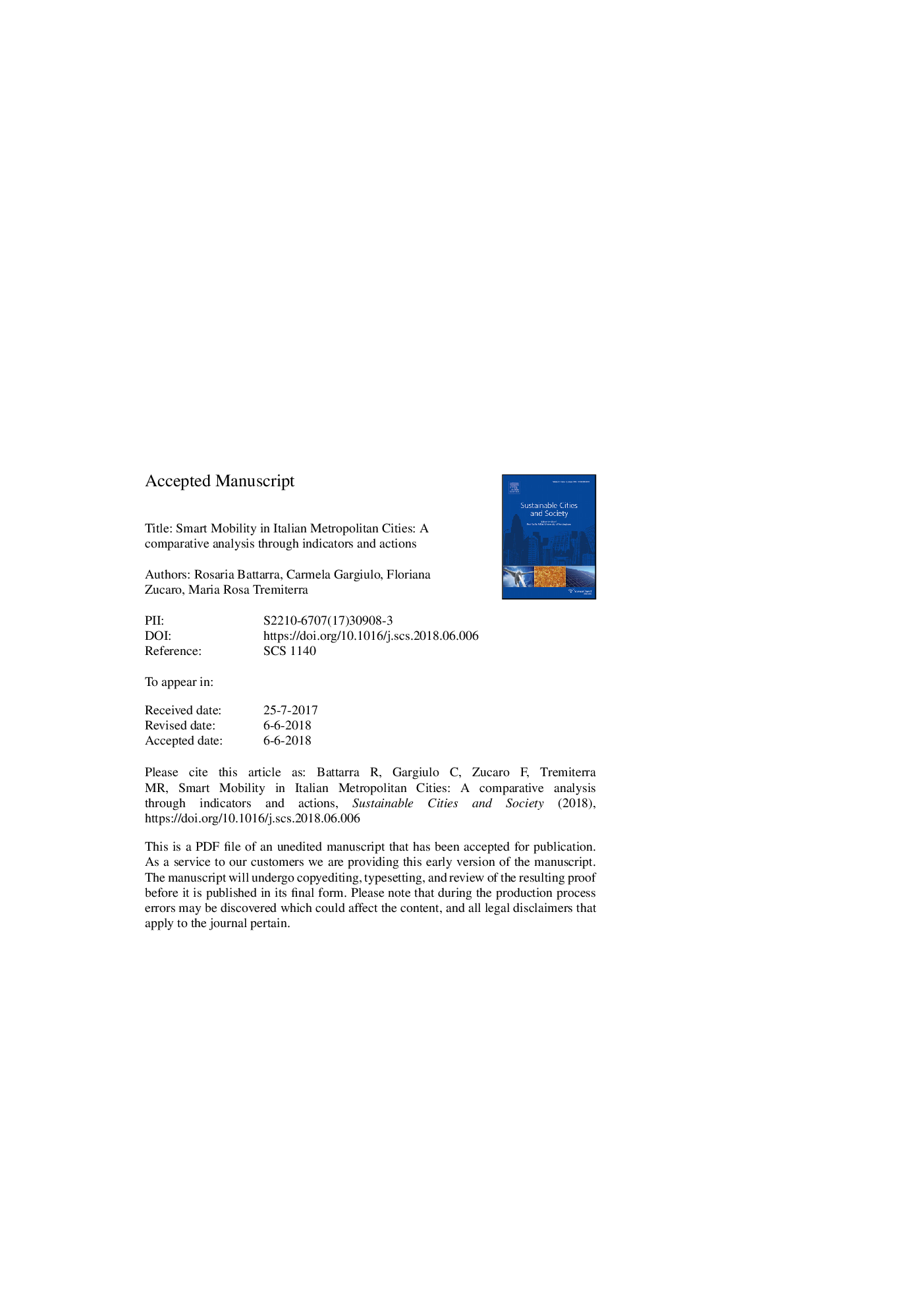| Article ID | Journal | Published Year | Pages | File Type |
|---|---|---|---|---|
| 6775136 | Sustainable Cities and Society | 2018 | 26 Pages |
Abstract
As a consequence of the spread of the Smart City paradigm, many cities are implementing Smart Mobility initiatives that are more suitable than other fields of investment for the dissemination of new technologies. This article is an empirical study about 11 Italian metropolitan cities, to investigate whether and to what extent the Smart City paradigm, applied to the mobility sector, is able to enhance the efficiency and liveability of urban areas. Through a set of parameters and the grouping of the main Smart Mobility initiatives, this study seeks to answer the following research question: as a result of the Smart City approach, have the Italian metropolitan cities enhanced their mobility system? This study highlights the fact that the application of the Smart City paradigm has had different effects on urban mobility systems, as the potential application of the model in question can be limited by the poor starting position of some cities. Indeed, in cities with a well-functioning mobility system, ICTs are a means to improve the efficiency of the transport system, while in metropolitan contexts where there is a lack of transport infrastructure, the use of new technologies becomes only a label rather than being integrated into urban policies.
Keywords
Related Topics
Physical Sciences and Engineering
Energy
Renewable Energy, Sustainability and the Environment
Authors
Rosaria Battarra, Carmela Gargiulo, Maria Rosa Tremiterra, Floriana Zucaro,
